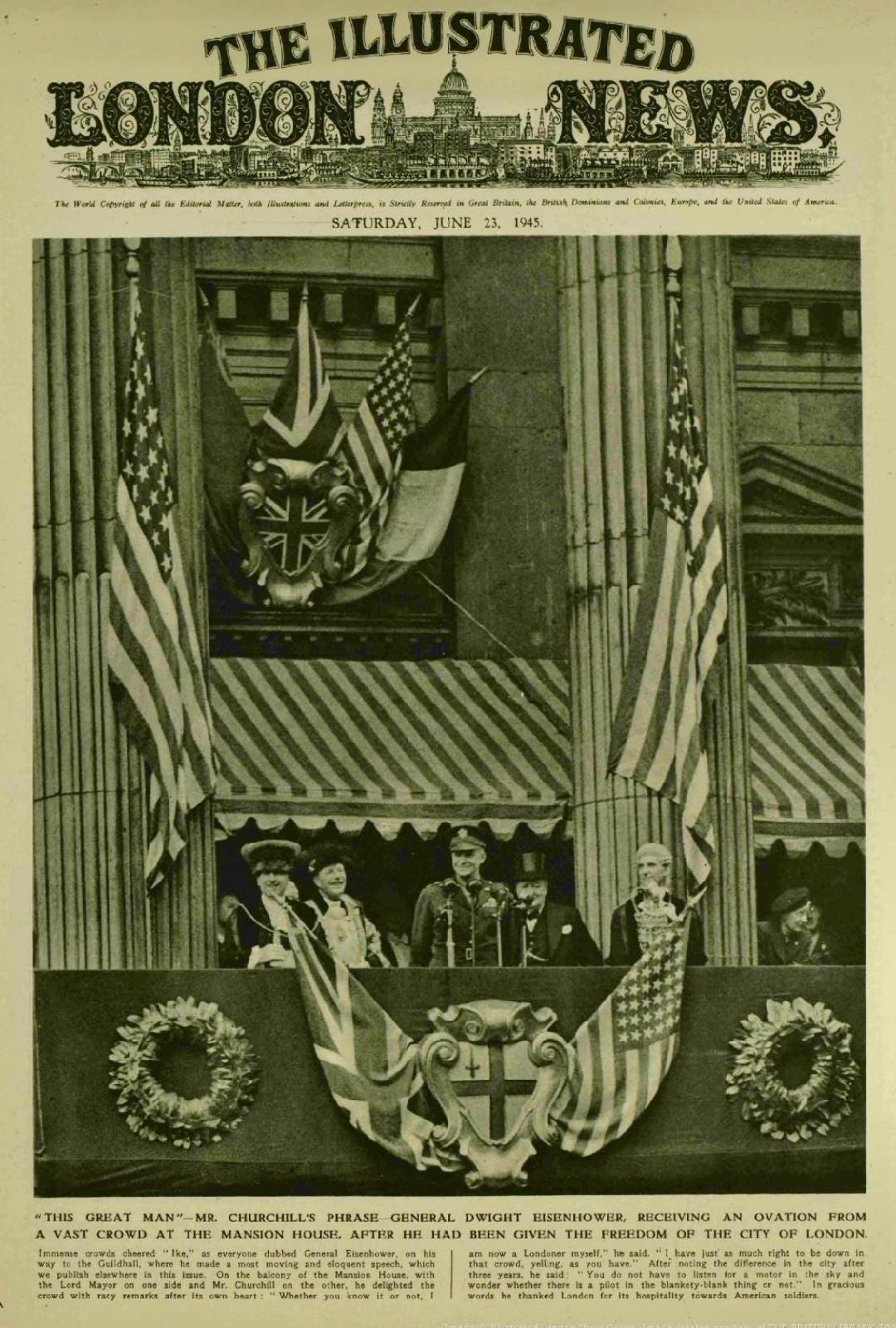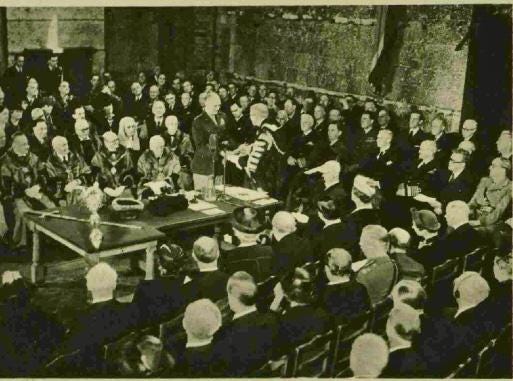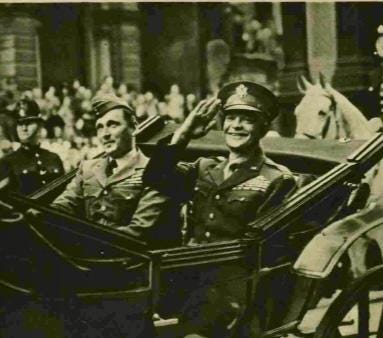The King and His Wartime Commander
The 80th anniversary of V-E Day on May 8 prompts memories of the enduring friendship between Dwight D. Eisenhower and George VI

“Had I possessed the military skill of a Marlborough, the wisdom of Solomon, the understanding of Lincoln, I still would have been helpless without the loyalty, the vision, the generosity of thousands upon thousands of British and Americans.”
When General Dwight D. Eisenhower addressed a crowd of dignitaries in London’s venerable Guildhall on June 12, 1945, he spoke with his customary humility as he received the Honorary Freedom of the City of London award, which confers symbolic citizenship. The honor, dating to the thirteenth century, is as prestigious as it is rare, reserved for royalty, heads of state, and other individuals of global importance. During the entire twentieth century, only about fifty people were given the award. Among them just two Americans preceded Eisenhower: Theodore Roosevelt in 1910 and Woodrow Wilson in 1918.

“Brought tears to the eyes of many”
Eisenhower was recognized for his historic contribution as Supreme Commander of the Allied Expeditionary Force during the Second World War, specifically by leading the D-Day invasion, the defeat of Nazi forces, and the liberation of Western Europe. Prime Minister Winston Churchill, who attended the ceremony, called Eisenhower “this great man.” London’s Lord Mayor, Sir Frank Alexander, presented the general with a Sword of Honour before the speech. Harry Butcher, Eisenhower’s naval aide, said the general’s words “brought tears to the eyes of many, including the Prime Minister’s.” Afterward, Eisenhower was driven in a horse-drawn carriage to the historic Mansion House, where the Lord Mayor hosted a luncheon. Eisenhower appeared on the balcony with Winston Churchill to greet the hundreds of thousands of people who shouted “Ike,” the general’s popular nickname.
“I am a Londoner myself”
“Whether you know it or not, I am now a Londoner myself,” he said to the cheering throng waving American flags. “I have just as much right to be down in that crowd yelling, as you have.” He remarked on the change in the city with the peace that came on May 8, Victory in Europe Day. “You do not have to listen for a motor in the sky and wonder whether there is a pilot in the blankety-blank thing or not,” he said.

An even greater accolade awaited the general that afternoon when he received the Order of Merit from King George VI with Queen Elizabeth over tea at Buckingham Palace. Founded by King Edward VII in 1902, it is the highest personal honor that a monarch can give. The Order of Merit has only twenty-four members at a time and rewards exceptional service in the military, science, literature or the arts. Eisenhower was the first—and only—American to receive the award.
For the King, it was a notably personal gift, rooted in a friendship that began in July 1942 and would continue to the end of his life a decade later. In his diary on June 12, 1945, George VI recorded the moment with his usual directness.
Keep reading with a 7-day free trial
Subscribe to ROYALS EXTRA BY SALLY BEDELL SMITH to keep reading this post and get 7 days of free access to the full post archives.



